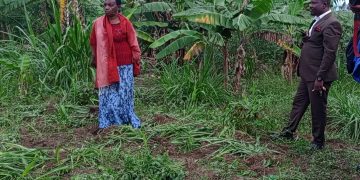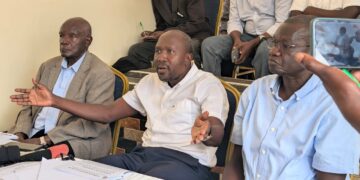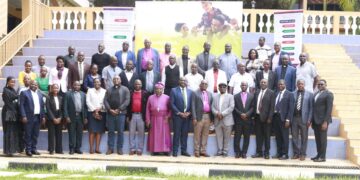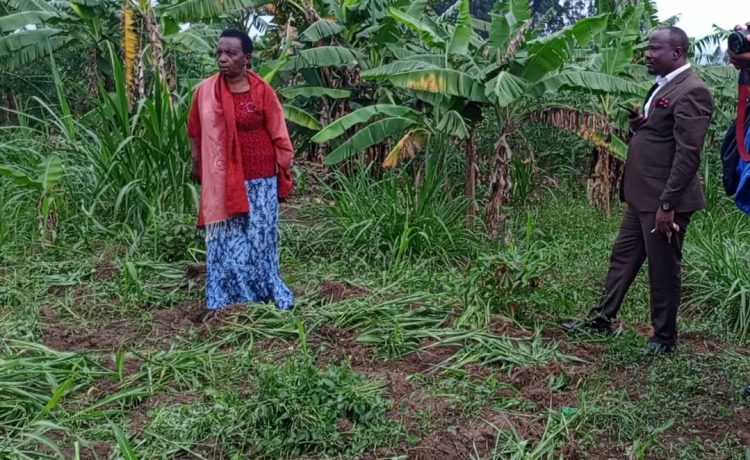By Okello E. Moses
KAMPALA
The government has been urged to review land policies and laws to promote agriculture and protect landowners.
Sharon Oyat Arach, the UPC spokesperson, says that land grabbing poses a significant threat to agriculture and castigated government for paying lip service to agricultural productivity, arguing that the process has been highjacked by cartels and middle men at the expense of the rural farmer especially the rural women who have less access to land. Arach called for a revision of laws to safeguard vulnerable groups, particularly widows and children.
“UPC urges government to reconsider land policy and laws to protect land owners especially widows and children who are more vulnerable to the land grabbers,” Arach said.
According to the UPC, land often represents the primary asset for many people, but the party decried increasing cases of land disputes which they say have significantly contributed to rising poverty rates, particularly in rural areas.
UPC criticized the government’s laxity in ensuring that every Ugandan has access to land, while large and corporate companies, politicians and top government officials are acquiring tracts of land at the expense of the population. The opposition political party contends the government should revise land laws to ensure equitable land distribution and empower the public to utilize it for productive purposes particularly in agriculture, which is key to government programs on poverty alleviation and improving livelihoods.
The call comes at the time when Uganda is boasting to host the Comprehensive African Agriculture Development Programme (CAADP) summit at Speaker Resort Munyonyo from January 9- January 11th, 2025, an initiative of the African Union Agenda 2063 aiming to end hunger and poverty in Africa through raising agricultural productivity, increased public investment in agriculture and enhanced economic growth through agriculture -led development, among others.

Speaking to journalists at their party’s headquarters in Kampala on Wednesday, Arach poked holes in the recently hosted summit stating that Uganda do “more than just hosting a summit” to fully implement the Malabo declaration which established CAADP.
The Malabo declaration was made in 2014 in Equatorial Guinea’s capital Malabo. It advocated for among other things “an annual agricultural GDP growth of at least 6%. It was a follow up of the Maputo declaration which advocated for a 10% allocation of national budgets to agriculture.
But, Arach says the Ugandan government has failed to fully implement the objectives of this declaration, emphasizing that it’s only UPC that can make Uganda to realize the Malabo declaration.
“There’s is lack of good will” by the government in implementation of the aims and objectives of the Malabo declaration. It’s only the UPC which is candid and could have exceeded expectations had they been in charge,” she said.

Addressing the summit’s agricultural ministerial meeting at the start of the Kampala summit, the Prime Minister, Rt. Hon. Robinah Nabbanja noted with concern that, “It is a shame that the continent’s food imports cost up to USD 100 billion.” She appealed to the summit to come up with “proposals on how Africa can come out of such an undesirable situation.” Uganda’s agriculture Minister, Hon. Frank Tumwebaze echoed the same sentiments calling upon the summit to “move, not with the times, but ahead of the times.”

While the government has made great strides through scientific research to ensure good quality seeds, UPC holds that the overall net effect on the population has not been tangible. Instead, it has benefitted those with the means. In his address to the summit, President Museveni commended Ugandan scientists for developing advanced seed varieties with higher yields and greater resilience to disease and drought.








































